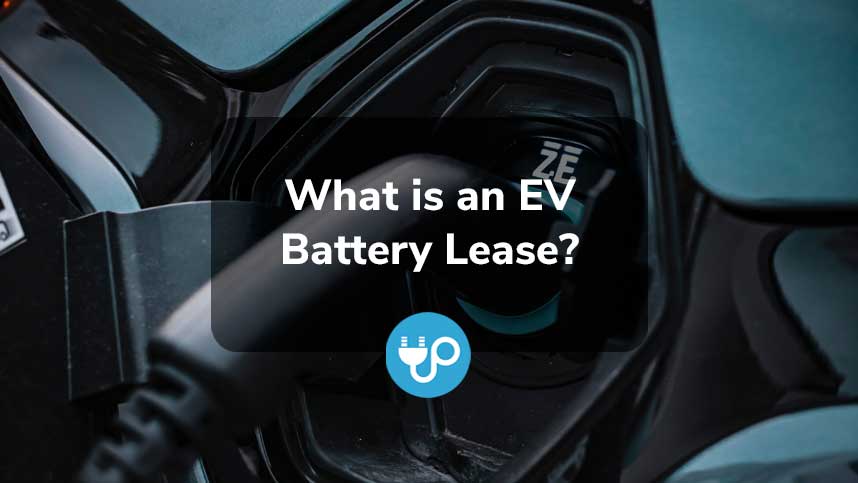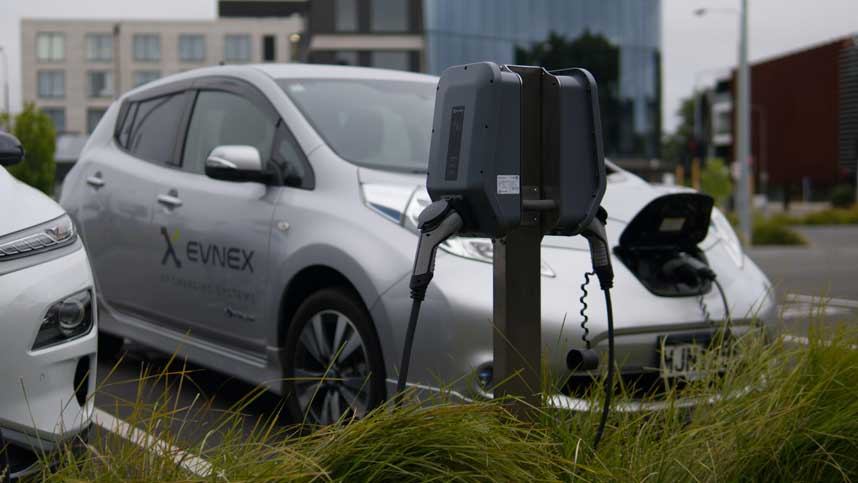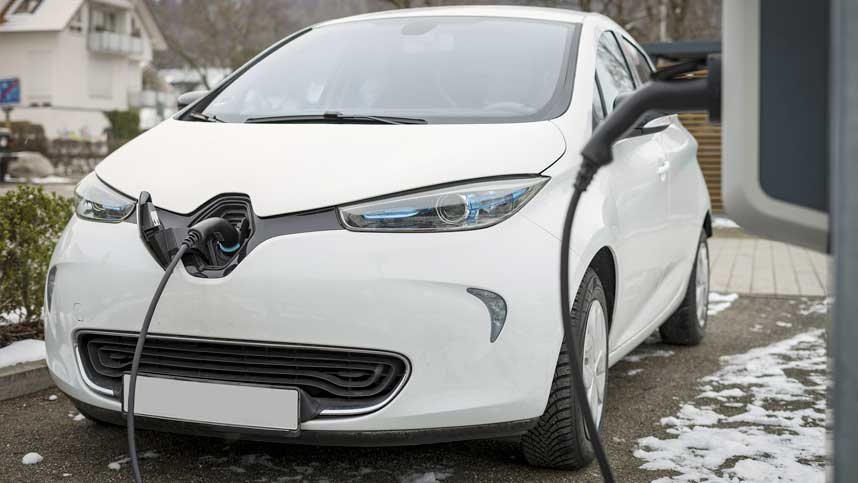
What is an EV Battery Lease?
If you're thinking of purchasing a used electric vehicle (EV), you might find yourself faced with a difficult and unexpected choice.
Buy one that comes with batteries included or go for one that requires a battery lease arrangement?
While it’s become less commonplace nowadays, there’s still instances where second hand EV’s, particularly Renault Zoe’s, Nissan Leaf’s, and certain Smart models, might come with battery leasing options.
Renault and Nissan previously offered battery leasing as an incentive for potential buyers concerned about the long-term durability of their battery packs.
However, it’s worth noting that newer models from these manufacturers are now exclusively offered with the battery included in the overall purchase price.
The concept of leasing batteries separately came about as a response to concerns among certain drivers regarding the potential significant decline in capacity of older electric vehicle batteries over time.
Very similar to how an aging phone may experience reduced battery life from repeat charging over time.
However, this apprehension has largely disappeared as consumer confidence in electric vehicle battery technology has grown, leading to a greater understanding and acceptance of the long-term performance of EV batteries.
Chapters
How EV Battery Leases Work
In a battery lease scheme, when you purchase an EV, you acquire most of the vehicle as you would with a traditional purchase, but you’re required to rent the battery separately.
The ownership of the battery remains with the car manufacturer, and you pay a monthly fee based on factors such as anticipated mileage and the duration of the lease agreement.
Typically, a battery lease costs around £50 to £100 per month.
This cost is comparable to what you might spend on fuel for a regular internal combustion engined car.
Opting for such a scheme helps lower the overall cost of the vehicle and importantly, provides assurance regarding the condition of the battery pack.
In the event of malfunction or degradation below a specified threshold (typically around 60-75% of the original capacity), the manufacturer will replace the battery.
Additionally, many schemes also include breakdown recovery insurance as part of the package, resulting in annual savings of approximately £100 for the car owner.
Which EV’s Have Battery Leases?

Renault remains the most common advocate of battery leases, and it’s still the exclusive method for acquiring a Twizy microcar.
Initially, battery leasing was implemented for the Zoe hatchback and Kangoo electric van as well.
However, Renault later introduced the option for customers to choose between battery lease or outright purchase.
As a result, the battery lease has been phased out for new Zoe models to streamline the purchasing process.
If you’re open to considering older EVs, there are options such as the first-generation Nissan Leaf and first-generation Smart ForTwo that were offered with battery leasing alternatives.
These older models present an opportunity to purchase a second-hand EV at significantly lower cost.
With the battery leasing option, you can benefit from the peace of mind of either batteries that offer a specific range or the possibility of free replacements, depending on the chosen leasing arrangement.
It’s important to note that these earlier EV models had relatively limited ranges, which could restrict their ability to travel long distances on a single charge, leading to range anxiety.
Therefore, if you prioritise maximising the range per charge, these older models may not be the most suitable options for you.
EV Battery Lease Pros
Electric car battery leasing offers several advantages.
Primarily, a lower initial cost and the reassurance that if the batteries experience substantial deterioration, they will be replaced without requiring a significant upfront payment from you.
So when purchasing a new Renault Zoe and opting for battery leasing for example, you can save approximately £6,500 off the original list price.
This reduction is significant, regardless of whether you choose to finance the car or pay the full amount upfront.
Of course, it’s important to consider the monthly lease payment in the equation.
However, let's assume you purchased a Renault Zoe with a 40kWh battery and had an annual mileage of 10,000 miles.
In this scenario, you could enjoy driving the vehicle for just over six years before the cost of leasing the battery exceeds the expense of including them in the initial purchase.
This timeframe provides a useful benchmark for evaluating the cost-effectiveness of the leasing option compared to the bundled battery option.
Additionally, having the assurance that you’re covered in the event of battery failure or degraded performance is a source of reassurance that many drivers would be willing to invest in.
This is because batteries are among the most costly components to replace in an electric car, and have limited lifespans.
Recognising this, the protection provided by a battery lease can alleviate concerns and offer valuable reassurance to car owners.
Even with the latest advancements in battery technology, there’s still uncertainty regarding the long-term functionality of battery packs, potentially influenced by concerns stemming from issues encountered by users of other battery-powered devices like smartphones and tablets.
EV Battery Lease Cons
Concerns surrounding battery leases for EVs primarily revolve around the additional financial commitment.
While leasing the battery initially contributes to making an electric car more affordable, this advantage disappears over time as the value of the car depreciates.
In the case of purchasing a low-cost used electric car, the cumulative cost of battery lease payments could eventually exceed the monthly expense of the vehicle itself.
Moreover, certain drivers prefer to avoid the inconvenience of multiple payments associated with battery leases for their cars.
This factor can also impact cash buyers during the resale process, as it reduces the potential pool of buyers.
On the other hand, there is a valid counterargument, as some buyers prioritise the peace of mind that comes with leased batteries, particularly for older models.
In conclusion, opting for battery leasing imposes limitations on the annual mileage you can cover, unless you choose an unlimited mileage option.
Exceeding the predetermined annual limit may result in fines, typically calculated at a rate of approximately 8-10p per mile.
However, with careful planning, you can effectively manage your mileage and avoid unexpected penalties.
Why are Battery Leases Now Unpopular?

Battery leasing schemes have lost popularity over time as they were primarily introduced to address consumer concerns about battery lifespan when EV technology was relatively new.
Buyers were worried that electric car batteries would deteriorate within a few years, similar to phones, tablets and laptops.
However, as these concerns have proven to be unfounded and electric car technology has become more established and familiar, buyers no longer perceive the need for the safety net provided by battery leasing guarantees.
Battery leasing also comes with significant drawbacks, on top of the ongoing monthly fees throughout your ownership of the vehicle.
Unlike road tax or insurance, you cannot suspend these payments during periods when you are not using the car, nor do they decrease over time.
This perpetual monthly payment can make potential buyers hesitant, and as the seller, it becomes your responsibility to ensure the transfer of liability for the financial agreement when you sell the car to a new owner.
Consequently, due to these factors, certain dealerships exhibit caution when it comes to handling the paperwork and assuming responsibility for battery lease EVs.
They may either decline to accept such vehicles or assign them a lower value during the appraisal process.
Specialists and authorised dealerships should have a better grasp of the situation.
But the lack of general awareness regarding battery leases contributes to keeping prices relatively lower in the market.
How to Tell If an EV Battery is Leased
Undoubtedly, any smart seller will be motivated to tell you about the battery lease arrangement.
If they didn’t, they would be responsible for the lease payments if you decline to assume the paperwork or purchase the finance company's interest.
However, there’s a possibility of deceptive practices, especially when purchasing from private sellers or less established dealerships.
Therefore, we strongly recommend conducting a thorough data check, such as an HPI query, on any used car you consider buying, particularly one that may involve a battery lease.
This step is crucial to ensure the vehicle has not been written off and is free from any outstanding finance obligations.
If you decide not to make the lease payments, it's important to note that the battery will continue to be owned by the finance company.
In such cases, you could potentially be held accountable for any missed installments.
Instead of resorting to legal measures, the finance company might have the capability to remotely disable the battery through the car's telematics system until the outstanding payments are settled.
It's essential to understand the potential consequences and liabilities involved if you choose to discontinue the lease payments.
Can I Cancel a Battery Lease Agreement?
Nissan provided the option for early FLEX model owners to purchase their battery packs, allowing them to terminate the battery lease.
On the other hand, Renault did not offer this option until March 2020.
Currently, all owners of battery lease vehicles such as Twizy, Zoe, Kangoo, and Fluence have the opportunity to buy their battery pack directly from RCI (Renault Crédit International) at any given time.
The purchase price is determined solely by the age of the vehicle, meaning that older vehicles (and corresponding battery packs) are available at a comparatively lower purchase price.
When searching for a used Zoe or Leaf for example, it’s essential to determine whether it’s a "battery owned" model, as not all dealers may explicitly mention it in their advertisements.
Some dealers may omit this information, hoping that buyers will be enticed by the low purchase price.
If you’re willing to assume the battery lease, it’s crucial to have a clear understanding of the associated costs, estimate your anticipated mileage, and determine the duration for which you intend to keep the car.
Additionally, keep in mind that a credit check may be conducted as part of the leasing process.
In the case of purchasing a Twizy, you will be required to take over the lease.
Hence, ensure that you agree to start paying for the lease only from the time you officially own the vehicle.
It’s advisable to visit the manufacturer's website and consider contacting their customer services directly.
This will allow you to obtain precise information about the lease costs that align with your requirements.
It may seem like a lot of effort to go to, but conducting this research is worthwhile.
It’s worth noting that lease schemes are gradually diminishing due to the complexities involved.
However, on a positive note, if the numbers work in your favour, opting for a lease could potentially make owning an electric car more financially feasible for you.
Conclusion
When considering the option of battery leasing for an electric vehicle, it’s essential to carefully evaluate the financial implications, understand the terms and conditions, and conduct thorough research on the specific vehicle and manufacturer.
While battery lease schemes have both advantages and disadvantages, including lower initial costs and peace of mind regarding battery performance, they also come with ongoing payments and potential limitations.
As electric vehicle technology continues to evolve, buyers have become more familiar with battery capabilities, leading to a decline in the popularity of leasing arrangements.
Ultimately, the decision to lease or purchase the battery pack depends on individual preferences, circumstances, and financial considerations.
Blog Archive
- Electric Car Tyres – All You Need to Know
- Are Electric Cars Cheaper to Run?
- Do Electric Cars Use Oil?
- 70% of UK Councils Have No On-Street EV Charging Plans
- Joosup + waEV-Charge: Electrifying the Future Together!
- What is an EV Battery Lease?
- 8 Great Reasons to Share Your EV Charger
- What is OZEV?
- What is ULEZ Compliant?
- Electric Car Charging at Home with No Driveway – What Can You Do?
- EV Home Charger Installation for Beginners
- How to Drive an Electric Car
- What is Range Anxiety & How Do We Defeat It?
- What is Destination Charging?
- What is a CHAdeMO Charger?
- What is CCS Charging?
- What is Peer to Peer EV Charger Sharing?
- Types of Electric Car Plugs Explained
- What is Community Charging?
- How Long Does It Take to Charge an Electric Car?

